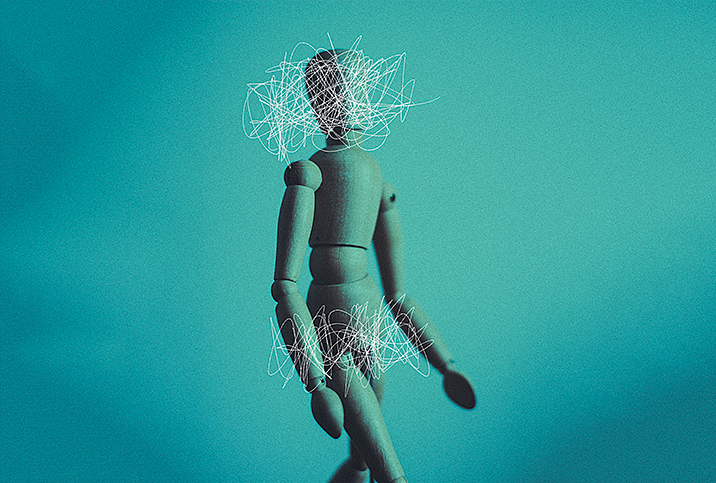ADHD: Myths & Misconceptions

For children who struggle with focusing and being still, a diagnosis of attention deficit hyperactivity disorder (ADHD) is common. But about a third of those diagnosed will no longer fit the disorder's criteria by the time they reach adulthood.
Despite how common ADHD is, there's still a lot of misinformation and misunderstanding about it. While we're quick to point at hyperactive children and (officially or unofficially) diagnose them with ADHD, it's a much more complicated issue in adults.
To help remove the stigma around ADHD, and to offer some insight into the disorder, we've put together a list of the most common myths and misconceptions about it.
Myth: People with ADHD are just lazy.
Reality: ADHD is a complicated medical issue that affects people in several ways.
The effects of ADHD involve several persistent problems, such as difficulty focusing, hyperactivity and impulsive behavior. In many adults, the symptom of hyperactivity may decrease, but other issues, such as restlessness, an inability to pay attention and impulsiveness, might persist.
Outwardly, these issues might make it seem like someone is "lazy" or "not trying," but the reality is these symptoms are not a choice or character flaw.
Hyperfocus is another common side effect of ADHD that contributes to this myth. Hyperfocus is an inability to shift the brain's attention away from an activity. So when someone with ADHD gets wrapped up in a book or a video game for hours on end but struggles with, for example, filing their taxes, we consider that to be lazy behavior. Hyperfocus is a strange symptom of ADHD because it goes against what we believe to be "normal" signs of ADHD, and further contributes to the stigma.
Myth: ADHD is a learning disability.
Reality: ADHD can make it more difficult to learn, but it doesn't affect the ability to learn.
When we talk about the term "learning disability," what we're describing is a disability that makes it difficult to acquire specialized skills. What differentiates ADHD from a learning disability is ADHD does not make these specific skills more difficult to acquire, but rather affects the ability to focus and control impulses, which can make it harder to pay attention when being taught new skills. It does not affect the ability to retain information.
However, 20 to 30 percent of children who suffer from ADHD also have a learning disability, which may contribute to the misconception that ADHD is one.
Myth: ADHD is a result of poor discipline.
Reality: ADHD is not caused by parental style, but ineffective parenting strategies can worsen the effects of ADHD.
When we see a hyperactive child acting out, our first thought might be to blame the child's parents for a lack of discipline or not controlling their child better. But this is rarely a fair assessment of the situation.
Poor parental discipline is not a cause of ADHD, as the disorder is linked to several factors, such as genetics, significant head injury, premature birth and prenatal exposure to things such as alcohol and smoke. However, no studies have shown poor discipline causes ADHD in children. What we're seeing is often the result of the child's medical condition, not a reflection of their parents' abilities.
Myth: Only boys have ADHD.
Reality: Boys with ADHD are more likely to show commonly associated symptoms, such as impulse control and hyperactivity, than girls with ADHD.
The symptoms and diagnosis of boys who have ADHD tend to happen earlier in life—at around age 7—compared to girls, who typically are diagnosed at around age 12.
Boys more often show symptoms of hyperactivity and low impulse control when they suffer from ADHD, whereas girls usually seem "daydreamy" or overly emotional. Girls are more likely to exhibit the inattentive types of symptoms as well. Many times, since this behavior is more subtle and less loud, these signs go unrecognized.
Final thoughts
Any mental illness can make life more difficult, but for people suffering from ADHD, the stigma of laziness can make life silently unbearable. By debunking some of the common myths surrounding ADHD, we can help open up the conversation and remove its negative stigma.

















